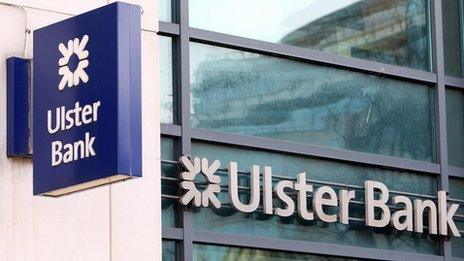Ulster Bank in Ireland an 'expensive headache'
- Published
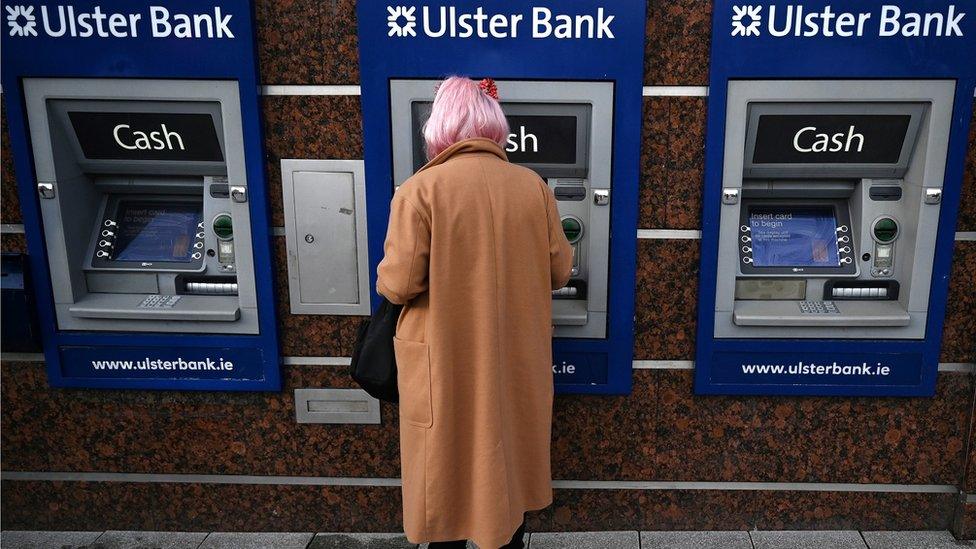
Ulster Bank has been part of Irish commercial life for more than 175 years.
It was founded by a group of Belfast businessmen in 1836 and opened its first Dublin branch in 1862.
Its George's Quay headquarters is one of the most recognisable buildings in Dublin's financial district.
But for the past decade the Republic of Ireland operation has been an expensive headache for its UK parent company, the NatWest Group.
Ulster Bank was an enthusiastic participant in Ireland's property bubble in the mid-2000s.
This was the era when its parent company, then known as RBS, was under the control of chief executive Fred Goodwin.
Mr Goodwin was set on growing RBS into the one of the world's biggest banks, a hubristic exercise which ended with the bank only being saved from insolvency by UK taxpayers.
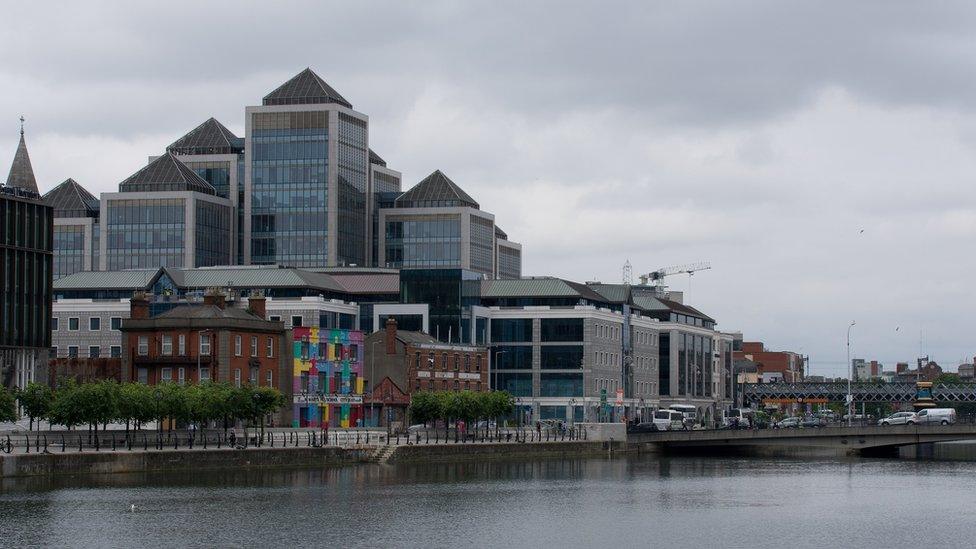
Ulster Bank's Dublin headquarters is on George's Quay
His Ulster Bank lieutenants helped inflate the Irish bubble from two directions.
In 2003, it was the first lender to offer 100% loan-to-value mortgages to house buyers.
Like Ireland's other banks it also provided huge loans to property developers.
It was the main lender to developer Sean Dunne when he spent €375m (£325m) buying hotels in Dublin in 2005 for an ill-fated redevelopment scheme.
The bank suffered multi-billion euro losses when the bubble burst and had to be bailed out to the tune of £15bn by its parent company.
By this stage the majority shareholder in RBS was the British state.
Ulster Bank in the Republic of Ireland has never really recovered from the property crisis.
In 2014, RBS began the process of reversing the overseas expansion which had been driven by Mr Goodwin.
From that time Ulster Bank's future has been a source of constant speculation.
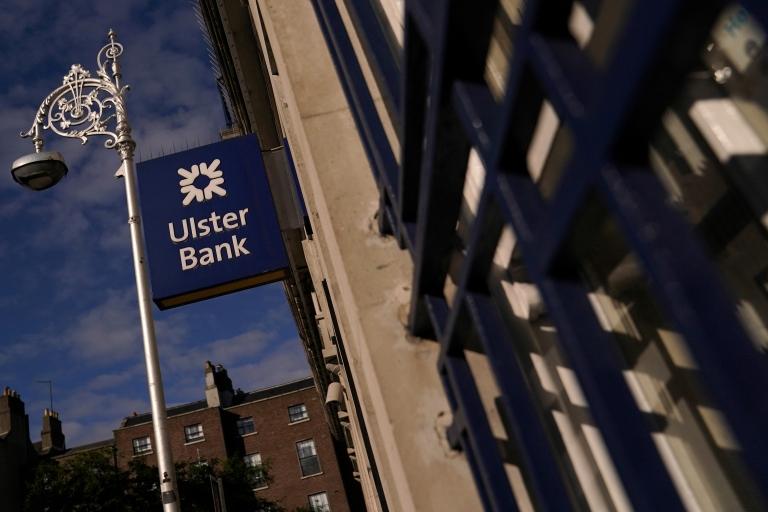
Ulster Bank struggled to recover from the property crash
In 2015, RBS performed a piece of corporate surgery which formally split the Northern Ireland and Republic of Ireland operations.
Ulster Bank NI began reporting to the bank's UK division while Ulster Bank RoI stood alone.
This obviously made it easier to close, sell or merge the Republic of Ireland operation.
The NatWest Chief Executive Alison Rose has now announced a phased shut down.
Perhaps the only thing that is surprising about this move is that didn't happen earlier.
Lloyds effectively shut down its Irish operation, Bank of Scotland Ireland, in 2010.
Other lenders like Danske and Rabobank have also pulled down the shutters on their Republic of Ireland operations.
The remnants of Ulster Bank will now be a Northern Ireland-only operation.
Not so very different from where it was in the 19th century.
Related topics
- Published19 February 2021
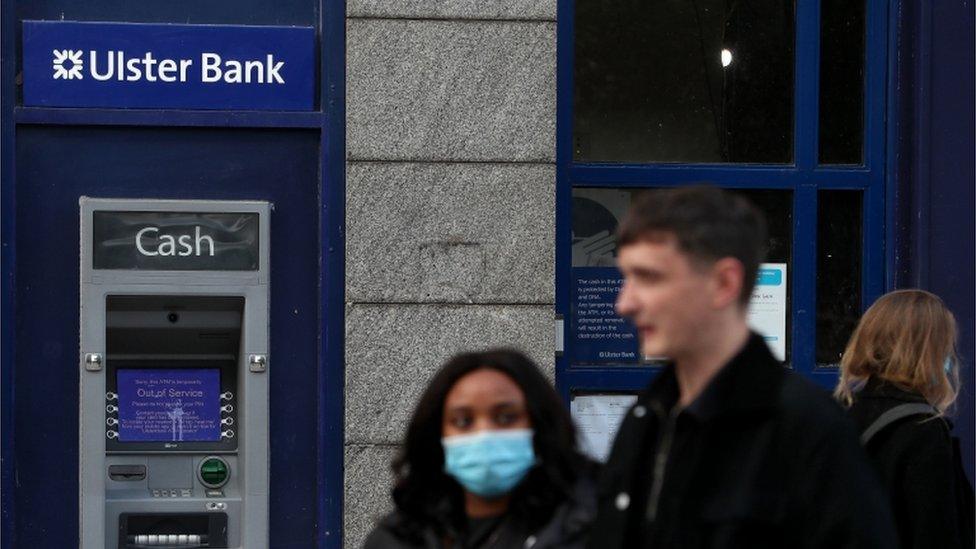
- Published6 February 2020
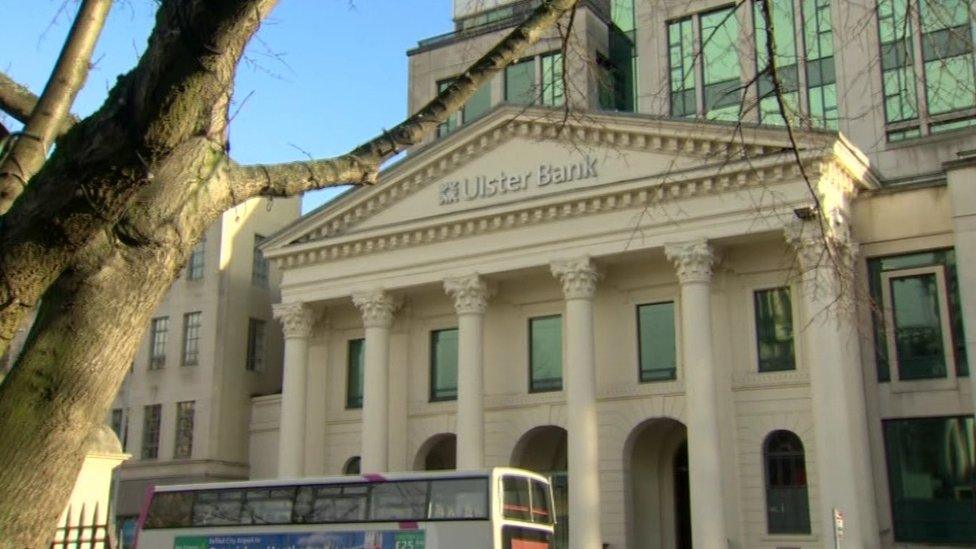
- Published2 May 2014
